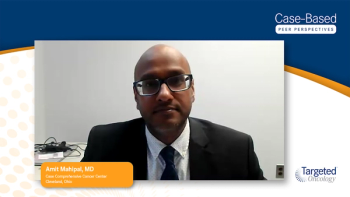
An expert discusses how, for advanced unresectable hepatocellular carcinoma (uHCC), clinicians monitor treatment efficacy through imaging, α-fetoprotein levels, and tolerability. Treatment decisions are guided by response assessment, adverse events, and liver function. First-line (1L) options include tyrosine kinase inhibitors and immunotherapy combinations, with promising trials exploring novel immune combinations and targeted approaches that may reshape the treatment landscape.


